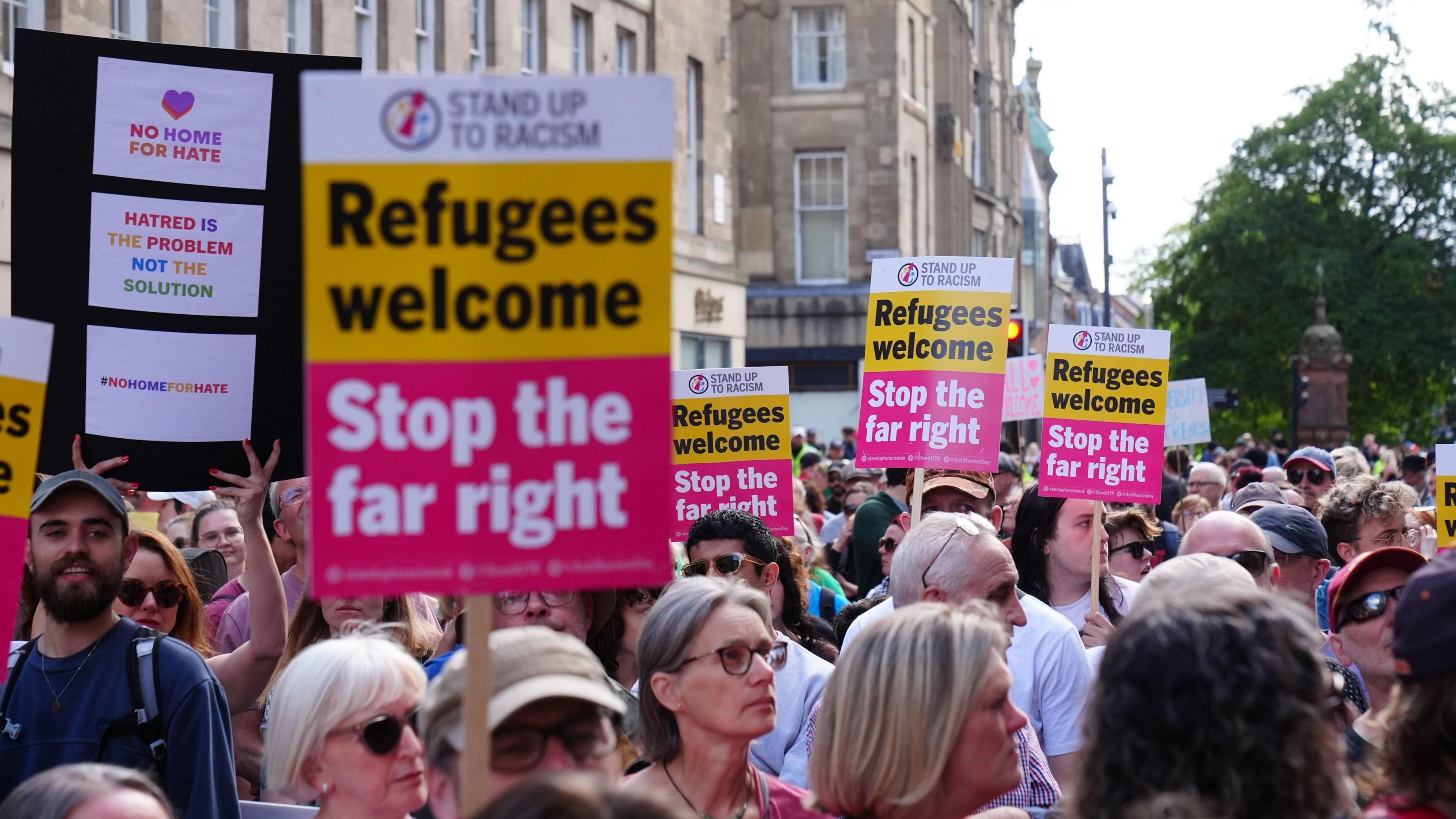North East asylum seeker housing search paused

Protests against houses of multiple occupation have taken place in parts of the region, such as this one in Peterlee
- Published
The search for new accommodation to house asylum seekers in north-east England has been paused.
The Home Office said it believed it currently had sufficient capacity in the region, but it has not stopped looking for additional properties in other parts of the UK.
The chief executive of Newcastle's West End Refugee Service (WERS) Andy Durma said a higher proportion of asylum seekers, relative to local population size, had been sent to the region because it had lower housing costs.
This latest move by the government follows a temporary pause being put on the purchase of new asylum accommodation in County Durham in June.
The Home Office said it had a legal obligation to provide accommodation to those who would otherwise be destitute while they wait for their asylum claims to be processed.
This housing is provided by contractors who are paid for by the Home Office.

Anti-racism demonstrators gathered on Newcastle's Newgate Street last year
The government introduced policy in 2022 which meant all local authorities would be expected to take in asylum seekers proportional to its population size by 2029, external.
Currently more asylum seekers are held in the North East relative to its population than any other part of the UK.
People cannot decide where they are sent around the country for accommodation except in "exceptional circumstances", according to the Home Office.
As of March 2025, the North East was home to 27.6 asylum seekers per 10,000 people, compared with the South West which had the lowest rate at 7.2 asylum seekers per 10,000 people.
In London there were 21.2 asylum seekers per 10,000 people, although none of these figures includes people who arrived via the Afghan resettlement or Ukraine visa schemes.
Asylum seekers are not permitted to work unless their claim has been outstanding for longer than 12 months through "no fault of their own", according to the Home Office.
Those in private accommodation are given £49.18 a week for expenses such as food and travel if catering is not provided, and £9.95 a week if it is.
Mr Durma said he believed more asylum seekers per head of population were sent to the North East because private housing was cheaper in the area.
Of those living in the region as of December 2024, the vast majority were in private accommodation and just 5% in hotels, according to the Migration Observatory at the University of Oxford, external.
The Home Office said value for money was part of its decision making process.

Police have been deployed to anti-immigration protests around the country
Mr Durma said one of the major issues facing asylum seekers in the region was many were housed in rural housing with little support or access to services.
"These are people who cannot work, who are bored," he said.
"They are dealing with their own trauma and then cannot afford to take the bus into town to take English lessons. And then you've got local people seeing them walking around not doing anything."
Mr Durma said he believed this was the "core root" behind recent protests around the country at hotels housing asylum seekers.
Follow BBC North East on X, external, Facebook, external, Nextdoor and Instagram, external.
Get in touch
Do you have a story suggestion for BBC North East & Cumbria?
- Published7 March 2024
